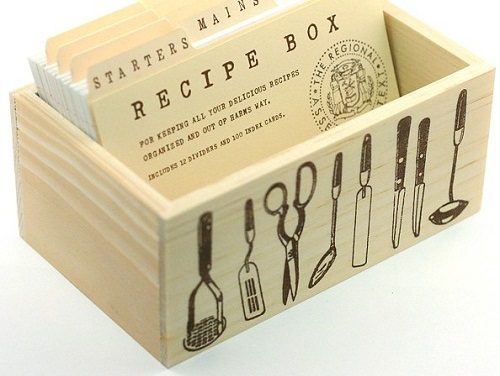The case for following the recipe exactly
January 9, 2021 by DarcieNormally when the calendar turns over to January I write a post about New Year’s food resolutions. I think all of us have enough pressure on us this year without adding to it, so I skipped the resolution post. However, some of you might have made one anyway, like the The New York Times’ Genevieve Ko did. Her resolution is about making a recipe exactly as written.

Ko feels that too often she places her own preferences and kitchen experience ahead of the recipe author’s, which she believe might be keeping her from truly experiencing a dish. Instead, she aims to play it straight in 2021 so that she can “get to know their creators without altering the dishes to match my own experiences or tastes.” Ko says that to “truly embrace another person’s background and culture, I need to suspend my own assumptions, culinary and otherwise.”
This resolution does not mean that Ko will blindly follow just any recipe she finds on the internet. She provides suggestions on what she will look for in a recipe so she has confidence that it will be successful. First, she will consider only recipes that are written with specific ingredients lists and instructions – some recipes are loosely framed and for those you must insert your own judgment. Ko will also be on the hunt for recipes that are outside her comfort zone or that sound “surprising in some way” so that she will be less tempted to deviate from the instructions. Finally, she will only use recipes that have been tested in some way. The best way to do that is to look for recipes from authors or websites that inform you that their recipes are tested prior to publication. Most of the recipes you’ll find in the EYB library from well-known authors have been put to the test, so that makes it easy.
Ko believes that allowing the recipe writer’s voice to shine through can lead to culinary discovery that she wouldn’t reach if she were to substitute her own ideas for that of the author. Although it is often difficult for me to follow a recipe exactly – for example, I almost always add more garlic than indicated – I believe Ko make a good case for hewing more closely to the original, and I’ll give it a shot (although I won’t call it a resolution). Maybe I will make some discoveries along the way as well.
Categories
- All Posts (6940)
- Antipasto (2135)
- Author Articles (247)
- Book News (935)
- Cookbook Giveaways (983)
- Cookbook Lovers (257)
- Cooking Tips (109)
- Culinary News (299)
- Food Biz People (552)
- Food Online (791)
- Holidays & Celebrations (272)
- New Cookbooks (149)
- Recipes (1500)
- Shelf Life With Susie (231)
- What's New on EYB (133)
Archives
Latest Comments
- DarcyVaughn on Danube Cookbook Review and Giveaway
- hettar7 on JoyFull – Cookbook Review & Giveaway
- eliza on What foods do you look forward to the most for each season?
- kmwyman on Rooza by Nadiya Hussain – Cookbook Review and Giveaway
- Maryd8822 on The Golden Wok – Cookbook Giveaway
- Dendav on Danube Cookbook Review and Giveaway
- sanfrannative on Rooza by Nadiya Hussain – Cookbook Review and Giveaway
- darty on Danube Cookbook Review and Giveaway
- Atroyer7 on Danube Cookbook Review and Giveaway
- demomcook on What foods do you look forward to the most for each season?